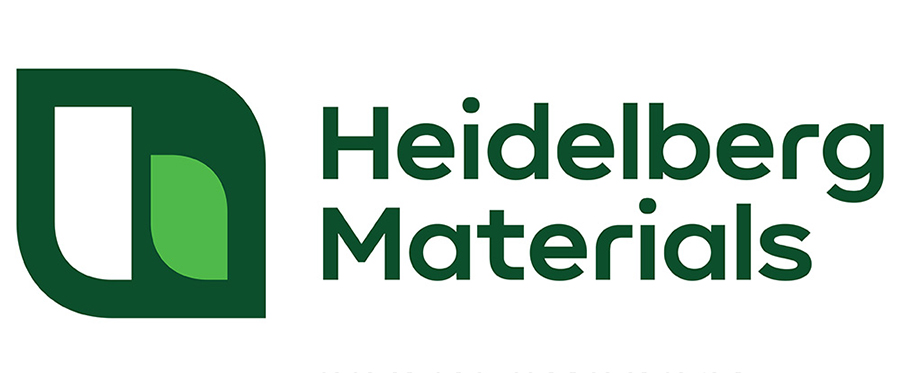Heidelberg Materials North America celebrates the completed rollout of EvoBuild™ Low Carbon Concrete, which is now available across all North American markets the company serves. EvoBuild concrete, which is part of the company’s Evolve™ family of products, was launched in early 2021 in Vancouver, British Columbia, Canada, and the successful rollout across all markets within two short years marks an important contribution to the industry’s decarbonization goals.
Evolve products represent an evolution in sustainable building materials. Heidelberg Materials’ products and partnerships are unified behind this single concept—that we must evolve to meet the challenges of tomorrow.
EvoBuild low carbon concrete takes a broad approach to sustainability goals and EvoBuild mixes use various levers to achieve carbon reduction. One lever is the use of EcoCemPLC™, Heidelberg Materials’ branded portland limestone cement (PLC), to replace general use portland cement. This aligns with the broader cement industry’s embracing PLC as an important decarbonization tool. PLC reduces the carbon intensity of cement because it reduces incorporation of clinker. Clinker production is the most carbon-intense portion of cement manufacturing. In PLC, the clinker incorporation rate can be driven down by 10-15% by moving the limestone component up. Switching to this product typically represents about a 10% reduction in the CO2 intensity of the cement product, while maintaining the ability to meet the stringent performance specifications required of cement and concrete.
Another carbon reduction lever for EvoBuild concrete is supplementary cementitious materials (SCMs). Individual EvoBuild mixes may use slag cement, fly ash, silica fume and or other pozzolans.
The EvoBuild product range is divided into four levels--Bronze, Silver, Gold and Zero. By offering this flexibility, a concrete mix can be selected that balances carbon reduction goals with other project variables, such as schedule and budget. Each category level offers a carbon reduction that falls within a specified range. EvoBuild Bronze offers 30-50% reduction; Silver offers a 50-70% reduction; Gold offers a 70-85% reduction; and when using EvoBuild Zero, a Heidelberg Materials sales representative works with the building team on a customized mix design and develop strategies to achieve carbon neutral mixes. The specified carbon savings levels for each of the four levels is measured against one of two baselines. In Canada, the Canadian Ready-Mixed Concrete Association industry-wide EPD that was released in January 2017 is referenced and for projects in the United States, the Carbon Leadership Forum Report 2021 is the baseline.
Several projects now showcase the use of EvoBuild concrete to achieve sustainability goals. For example, a new, seismically safer building for the Henry Hudson Elementary School in Vancouver, Canada used EvoBuild Bronze. EvoBuild Bronze has, as its standard, a minimum of 30% carbon reduction, “so the 30-50% carbon reduction offered with EvoBuild broadened the conversation beyond specification requirements that were focused on replacement of portland cement, and toward the larger goal of reducing global warming potential,” said Shane Mulligan, Area Technical Sustainability Manager, Heidelberg Materials North America.
More recently, Heidelberg Materials provided 941 cubic meters of EvoBuild Silver mix for Larco Investments Ltd on another project in Vancouver, located at 550 Drake Street. EvoBuild helped the project team meet low heat requirements for the mass concrete pour.
A large government contract in eastern Canada, which had ready mix concrete supplied to Bird Construction, used 38,000 cubic meters of EvoBuild Silver controlled density fill. The fill was a pumpable, low carbon mix that met all strength requirements and was placed by boom pumps.
“Having EvoBuild mixes available at all our ready mixed concrete operations is a game changer. These low carbon mixes have the same performance as our standard mixes while delivering significant CO2 reductions, which helps our customers reach their sustainability goals,” said Larry Rowland, Sustainability Market Manager, Heidelberg Materials North America.
“A key part of our EvoBuild program rollout has been education, and ensuring our local sales and technical service teams are well-versed in the carbon reduction levers available, along with their impacts and limitations. On a go-forward basis, our concrete mixes are constantly evolving and incorporating new innovations as we strive toward the goal of net-zero concrete across all our markets,” said Mulligan.


